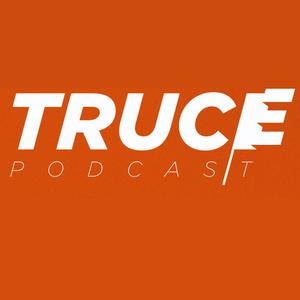
Truce
Chris Staron
A history podcast about the Christian Church. Pyramid schemes, political campaigns, and all the big questions.
- 1 hour 3 minutesRepublicans and Evangelicals | A Brief History of Libertarianism (featuring Andrew Koppelman)
Give to help Chris continue Truce
Modern evangelicalism sometimes incorporates pieces of different ideas. Things that are in the air. Social messages. Political stances. But has evangelicalism been enchanted by libertarianism?
In this episode, we cover a brief history of libertarianism. What is it and who are some of the main thinkers? We discuss Murry Rothbard, Ayn Rand, Friedrich Hayek, and Robert Nozick.
What is a libertarian? Matt Zwolinski and John Tomasi define libertarianism by six characteristics. Libertarians are defined by a love of private property, they are skeptical of authority, and they like free markets, spontaneous order, individualism, and negative liberty. We will define each of these throughout the episode.
Our special guest for this episode is Andrew Koppelman, law professor at Northwestern University. He's the author of the book Burning Down the House: How Libertarian Philosophy Was Corrupted by Delusion and Greed.
Sources
- Burning Down the House: How Libertarian Philosophy Was Corrupted by Delusion and Greed. by Andrew Koppelman
- The Individualists by Matt Zwolinski and John Tomasi
- The Road to Serfdom by Friedrich Hayek
- Matthew 25
- The Road to Serfdom cartoon version
- The Years of Lyndon Johnson by Robert Caro (for the Dust Bowl section in book 2)
- 99% Invisible episode The Infernal Machine for information on anarchists
- Teddy Roosevelt's first address to Congress
- Dark Money by Jane Mayer
- EPA.gov article about The Clean Air Act
- NPR story about law enforcement throwing protestors in unmarked vans
- Listen America! by Jerry Falwell
- Atlas Shrugged by Ayn Rand (I could only stomach maybe 1/4 of it. I promised myself if she wrote "Rearden Steel" one more time that I would stop reading. She did. So I did.)
Discussion Questions
- What is libertarianism?
- How have you seen libertarianism crossing over into evangelicalism?
- Does libertarianism counter the story from Matthew 25?
- What is the impact of Ayn Rand? Have you read her books?
- Why did Atlas Shrugged suddenly become the "it" book among Republicans in 2020?
- Is there any place for selfishness in the Christian walk?
Learn more about your ad choices. Visit podcastchoices.com/adchoices
7 January 2025, 12:00 pm - 43 minutes 8 secondsRepublicans and Evangelicals I How Bad Drivers Prepare Us for Christmas
Give to help Chris make Truce
Well, we survived the 2024 US presidential election! But many people still feel anxiety as we head into the Christmas and New Year holidays. How can Christians prepare for a holiday season when politics will likely arise?
Chris Staron is joined by Karl Klemmer, Nick Staron, and Ray McDaniel at First Baptist Church in Jackson, WY to discuss these issues and more. Plus Chris talks about his own anger as a pedestrian as drivers have come close to hitting him. How do Christians respond when they are wronged? We also spend a lot of time talking about Romans 14 which encourages believers to love their brothers and sisters who struggle in their faith or who have convictions different than our own. Can verses about food sacrificed to idols teach us something about dealing with loved ones who are different than us?
Sources:
- Romans 12-15 (mixed translations)
Discussion Questions:
- Why is it important to come to a complete stop at stop signs?
- Has anyone ever wronged you on the road? How did that feel? How did you react?
- Do you get upset about things you can't change? What are some examples?
- How can you adjust to not beat yourself up over things you can't change?
- What are other examples of non-mission critical things we can give grace on (like food sacrificed to idols)?
- Are there political issues that are mission-critical? Which ones are not? What are some that you can let slide in a conversation?
- How do you prepare yourself to enter a stressful environment?
Learn more about your ad choices. Visit podcastchoices.com/adchoices
17 December 2024, 12:00 pm - 47 minutes 12 secondsRepublicans and Evangelicals I How the Wealthy Dodge Taxes (w/ Pro Publica's Jesse Eisinger)
Give to help Chris make Truce
How do ultra-wealthy people avoid paying taxes? It seems like a strange subject to bring up when discussing why some evangelicals are drawn to the Republican Party. But many of the ties between evangelicals and the GOP have to do with money. So, let's take a little side trip and explore the tax loopholes of today. More importantly, let's try to understand why so many Americans are tax-averse. Could it possibly be because we, deep down, know that someone else is getting a better deal than us?
One tactic used by the ultra-wealthy is "buy, borrow, die". They avoid "income", instead opting for assets like stock and real estate they can borrow against. Borrowed money is not taxed. Then they either pay back those loans with other loans (often with interest rates that are much lower than their tax rates would be) or they fail to pay back the loans. Then... they die.
Jesse Eisinger is a Pulitzer Prize-winning reporter with Pro Publica. Chris first heard about him from his book (pardon the language) The Chickenshit Club and met him when he appeared at a live event in Jackson, WY hosted by the Teton County Library, the Center for the Arts, and the Jackson Hole News and Guide.
Sources
- Pro-Publica's reporting on taxation
- This lecture at the Center for the Arts in Jackson, WY on November 8, 2023
- Fascinating IRS responses to some of the conspiracy theories about them
- Disney's Donald Duck film "The New Spirit" encourages income tax as a national duty
- Time Magazine article about the history of taxes
- William McKinley vs. William Jennings Bryan by John Pafford (pg 29)
- New York Times archival article listing taxes paid by the wealthy
- The 16th Amendment
- The Macomber case article on Justia.com
- Historic Tax Bracket data
- Time Magazine article on the John Birch Society
- Methodist History from January 1988
Discussion Questions:
- What are your thoughts on the income tax in general?
- How should countries be funded?
- Why might a progressive tax structure (where wealthy people pay more) make sense?
- How could we close some of these tax loopholes?
- What is the difference between income and wealth?
- Should we tax wealth in the USA?
Learn more about your ad choices. Visit podcastchoices.com/adchoices
3 December 2024, 12:00 pm - 29 minutes 39 secondsRepublicans and Evangelicals I Fundamentalist Takeover of the Southern Baptist Convention
Give to help Chris continue Truce
It all started with a meeting over fancy donuts. Paige Patterson and a friend met together to plot the fundamentalist takeover of the Southern Baptist Convention. Before that time, the SBC had been more theologically diverse (though, not necessarily racially diverse due to its founding as a group that desired slavery). But if this group of fundamentalists was going to get a whole denomination to turn their way, they'd have to be clever. It would take time.
Their scheme involved getting fundies elected into high office who could then turn committees and sub-committees to their side. It's a story of a minority group gaining control of a large organization, and steering it toward their vision of what it means to be a Christian.
Sources
- The Fundamentalist Takeover of the Southern Baptist Convention – by Rob James, Gary Leazer
- The Evangelicals by Frances Fitzgerald
- Christianity Today article about Paige Patterson's allegations
- Religion News article about Patterson
- Tennesseean article about Patterson
- Article about early Baptists
- Church History in Plain Language by Bruce Shelley
- Cornell's article about the separation of church and state
- Frances Shaeffer and the Shaping of Evangelical America by Barry Hankins
- Johnson Archives about SBC
- Johnson Archives SBC Resolutions
- Certified Pastry Aficianatro article about beignets
Discussion Questions
- The episode starts with a discussion of accusations about Paige Patterson. What was your reaction to that story and why?
- Is it possible for a spouse to be a part of the salvation of their husband or wife? Where are the lines?
- When were you baptized? Did you do it as an adult, child, or both? Why?
- What do you think is the "right" way to baptize someone? Why?
- What are your thoughts on inerrancy?
Learn more about your ad choices. Visit podcastchoices.com/adchoices
19 November 2024, 7:00 am - 41 minutes 27 secondsMike Cosper: The Church in Dark Times
Give $10/ month to help Chris make Truce
What are the warning signs that a church leader will become a tyrant? How do we prevent church hurt from becoming our identity? What are ideologies and how do they become the overall focus of some ministries?
Mike Cosper is the co-host of Christianity Today's The Bulletin podcast, the producer and host of The Rise and Fall of Mars Hill, and now the author of The Church in Dark Times.
Discussion Questions:
- How does Mike define "Ideology"? What does it mean to have a strong ideology? Do you have any? How does this differ from having a simple belief?
- Why do you think so many people today struggle with anxiety? How can ideologies protect us from our anxiety? Why might that be a poor crutch?
- Mike recommends worship as a way to fend off anxiety. Why could that help?
- Is it wrong for churches and organizations to have a missions statement or goals?
Learn more about your ad choices. Visit podcastchoices.com/adchoices
4 November 2024, 1:00 pm - 18 minutes 50 secondsThe Cask of Amontillado by Edgar Allan Poe
Give to help Chris continue to make Truce
In the Kanawha County Textbook War episode, Chris shared that the people of that county fought against some textbooks and stories being read in classrooms and as homework. Edgar Allan Poe's The Cask of Amontillado is one of the texts that was contested.
So Chris decided to read it here as a bonus episode at the end of October. Enjoy!
Learn more about your ad choices. Visit podcastchoices.com/adchoices
29 October 2024, 11:00 am - 53 minutes 10 secondsRepublicans and Evangelicals I Frances Schaeffer and the Shaping of Christian Nationalism (feat. Barry Hankins)
Give to help Chris make Truce.
Frances Schaeffer is one of the most important theological thinkers of the 20th century. He urged fundamentalists and evangelicals to think outside of their separatism and consider how they could reach the world and expand their worldview. He began his career as a preacher in the United States, but a foreign missions board asked him to assess the state of fundamentalism in Europe after WWII. While there he saw great works of art and met fascinating people. Eventually, Schaeffer moved to Switzerland to start L'Abri, a chalet community where wanderers could come, live, and discuss the gospel.
That's where the story may have ended. But his lectures were turned into audio cassettes and books. Then, from this small mountain village, Schaeffer became one of the best-known evangelicals in the world. Once he returned to the United States, his books took on a Christian nationalist tone which sticks with us today.
Our guest for this episode is Barry Hankins. He's the author of Frances Schaeffer and the Shaping of Evangelical America. He is a professor of history at Baylor University.
Sources:
- Francis Schaeffer and the Shaping of Evangelical America by Barry Hankins
- The Evangelicals by Frances Fitgerald
- Reaganland by Rick Perlstein
- A helpful article about the Renaissance
- A helpful article about the Enlightenment
- Schaeffer's film How Should We Then Live?
- Gospel Coalition article about secular humanism
- A Christian Manifesto by Frances Schaeffer
Discussion Questions:
- Have you read any of Schaeffer's work?
- What is your "worldview"? How did you get it? How did you become aware of that concept?
- Should all Christians have an idea of their worldview? Should it look a certain way?
- What do you think about the middle part of Schaeffer's ministry when he was preaching in L'Abri? How does it differ from the last third of his ministry?
- How have you seen Christian nationalism? What parts of the Bible do people use to justify it?
Learn more about your ad choices. Visit podcastchoices.com/adchoices
22 October 2024, 11:00 am - 51 minutes 19 secondsRepublicans and Evangelicals I Women's Roundtable Book Discussion
Give to help Chris continue making Truce
Betty Friedan's The Feminine Mystique kicked off second-wave feminism in the United States. The book was published in 1963 and addressed what she called "the problem that has no name". As women's roles shifted with the invention of electricity and the number of workers needed to run farms decreased, women's roles shifted. The idea of a "traditional" woman went from a farm laborer or factory worker to someone who kept the home and managed her children's schedules. This left many women feeling unsatisfied and searching for their purpose in life. Friedan's book addressed those issues and inspired more extreme views of women.
Several "Christian" books were published to respond to Friedan and second-wave feminism. One was The Total Woman, the number one bestselling nonfiction book of the year which has sold over 10 million copies. Published in 1973, it was the genesis of the scene in Fried Green Tomatoes where Kathy Bates goes to the door to meet her husband wrapped in Saran Wrap. It encouraged women to use costumes to greet their husbands, to avoid being "shrewish", and to use Norman Vincent Peele's philosophy of positive thinking.
Another book was The Spirit-Controlled Woman by Beverly LaHaye. This was a companion piece to a book written by her husband Tim LaHaye, but it somehow managed to avoid telling women how to live by the Spirit.
Special guests join Chris for this episode. Each took a different book so we can better understand this movement and counter-movement.
Special Guests:
- Amy Fritz of the Untangled Faith podcast
- Anna Tran of the Love Thy Neighborhood podcast
- Jen Pollock Michel author of In Good Time, A Habit Called Faith, and Surprised by Paradox
Sources:
- The Feminine Mystique by Betty Friedan
- The Spirit-Controlled Woman by Beverly LaHaye
- The Total Woman by Marabel Morgan
Discussion Questions:
- What is your relationship to the books we discussed in these episodes?
- What is the difference between first-wave feminism and second-wave feminism?
- How have the roles of women changed in society in the last 200 years? What role did electricity, the Industrial Revolution and wars shaped those roles?
- What was the "problem that has no name"? How did/does it impact women's lives?
- How does this vision of feminism compare and contrast to biblical images of women?
- How have we added or subtracted from what the Bible says about women to create our modern image of a "Christian woman"?
- Morgan advised her readers to meet their husbands at the door in costumes. What is your opinion of this idea?
- What did she mean when she said she had been "shrewish"? Is that term insulting to women? Why?
- Is the "Christian ideal" vision of women one that requires women to stay home with children?
Learn more about your ad choices. Visit podcastchoices.com/adchoices
8 October 2024, 11:00 am - 34 minutes 7 secondsCompelled - KKK Terrorist Finds Christ
Donate to help Chris make Truce
In the 1960s, Tom Tarrants was a young man on a mission - to save America from Communism, Marxism, and desegregation. He was prepared to do anything, including joining the Ku Klux Klan, drive-by shootings, or even dying for his cause. Yet God had a far greater plan for this would-be revolutionary.
Find the Compelled Podcast at https://compelledpodcast.com/
Learn more about your ad choices. Visit podcastchoices.com/adchoices
2 October 2024, 11:00 am - 39 minutes 20 secondsRepublicans and Evangelicals I National Women's Conference Part 2 (featuring Marjorie Spruill)
Give to help Chris continue making Truce
The National Women's Conference was set to take place. State meetings were overrun by conservative women causing disruptions to the meetings as they paid the entrance fee with pennies or made noises during the discussions. But liberal women were not angels either. Some went so far as to accuse the conservatives of sending in mental patients to do their voting.
It's easy in all of the noise to forget that this was a monumental meeting. Women from all over the country gathered together to discuss issues that impacted them. They ran the show. They set the agenda. Conservative women, by and large, didn't show up for the main meeting. Why? Because of conspiracy theories circulated by groups led by people like Phyllis Schlafly saying that the elections would be rigged. Also, they started their own conference across town.
This pro-life, pro-family rally was only about three hours long. But it packed a big punch. People from all over the country took busses overnight to attend. They couldn't stay the night because hotels were already booked up for the main meeting. So they came and went on the same day, taking the pro-family, pro-life movement with them.
In this episode, Chris winds up a three-part mini-series that takes us from Phyllis Schlafly's turn against the ERA to this momentous weekend in 1977. The fallout of the conference is still with us today as religious people on the right work together to accomplish their goals, often trying to undo what liberals on the far left have already done. Extremes continue to snipe at extremes as the middle tries to get things done.
Our guest for this episode is Marjorie Spruill, author of the book Divided We Stand. It is an excellent resource that is balanced and well-notated.
Sources:
- Divided We Stand by Marjorie Spruill
- Reaganland by Rick Perlstein
- Interviews from the National Women's Conference
- Phyllis Schlafly Report from December 1977
- NBC's coverage of Phyllis Schlafly's funeral with Donald Trump's eulogy
Discussion Questions:
- What were some positive outcomes of the National Women's Year conference?
- What were some challenges they faced?
- Why did conservatives feel shut out of the conference?
- What do you think about the role of conspiracy theories in conservative circles (example: Schlafly's insistence that the meeting votes were rigged)?
- Schlafly was overlooked in the Reagan administration. Why do you think that is?
- Why is it so hard for people of different beliefs to work together, even for the common good?
- What do you think would have happened if the IWY conference had not featured lesbian rights? Should it have avoided that controversial topic, or was it an issue whose moment had come?
Learn more about your ad choices. Visit podcastchoices.com/adchoices
24 September 2024, 11:00 am - 50 minutes 28 secondsRepublicans and Evangelicals I National Women's Conference Part 1 (featuring Marjorie Spruill)
Give to help Chris make the Truce Podcast
In 1977, the Congress of the United States allotted $5 million for the National Women's Conference. The money was intended to bring together women from around the country so that they could put together recommendations for the Congress and President. It would highlight women of color, and those minorities who were sometimes overlooked like Native American women. But there was conflict from its inception.
Liberal women, some of the same who turned NOW into a liberal group, took control. They did not want the far-right to participate, women like Phyllis Schlafly who had fought so hard to stall the ERA. This only made conservative women more bitter.
There was more fuel for the fire. Gay and lesbian rights were added to the discussion topics of the convention. That was a big deal in 1977 when conservative women rallied around Anita Bryant and her fight against equal rights for homosexuals in Miami, Florida. The Bible says that homosexuality is a sin, so some conservative religious people did not want to give homosexuals rights in the US. So for liberal women to incorporate a gay and lesbian plank into the National Women's Conference was a BIG deal. And a way to pick a fight with conservatives.
The battle ultimately led to conservatives hosting their own conference a few miles away. This gathering ultimately united the Religious Right and kicked off the Pro-Life, Pro-Family movement that we know today. How did women play a role in uniting evangelicals with the Republican Party?
Our guest today is Marjoie Spruill. She is the author of the fantastic book Divided We Stand. She is a distinguished professor emerita of history at the University of South Carolina.
Sources:
- Divided We Stand by Marjorie Spruill
- Reaganland by Rick Perlstein
- The Evangelicals by Frances Fitzgerald
- Anita Bryant's orange juice commercial
- Phyllis Schlafly on PBS video
- Former President Trump's eulogy for Phyllis Schlafly
- Andy Warhol's cover art for Time Magazine of Bella Abzug
- New York Times article about women swinging while their husbands were in Vietnam
- "Revive Us Again" by Joel Carpenter
Discussion Questions:
- What is your impression of Anita Bryant? Do you remember her?
- What rights should homosexuals have in the United States? In the last episode about Phyllis Schlafly, we looked at conflicting opinions of what equal rights look like for women. Should they be treated the same as men or have equality plus protections? Let's transfer that question to homosexuals. Should they have equal rights, fewer rights, or equal rights plus protections?
- Should women on the president's council have opened the National Women's Conference to women on the far right?
- What do you think will happen once the conference is launched?
Learn more about your ad choices. Visit podcastchoices.com/adchoices
10 September 2024, 11:00 am - More Episodes? Get the App
Your feedback is valuable to us. Should you encounter any bugs, glitches, lack of functionality or other problems, please email us on [email protected] or join Moon.FM Telegram Group where you can talk directly to the dev team who are happy to answer any queries.
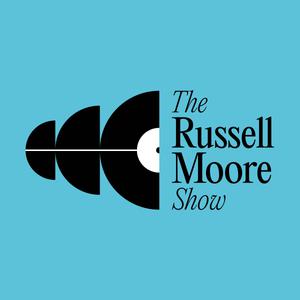 The Russell Moore Show
The Russell Moore Show
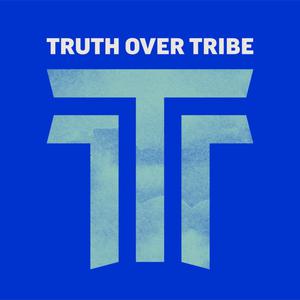 Truth Over Tribe: Christian Takes on Culture, News & Politics
Truth Over Tribe: Christian Takes on Culture, News & Politics
 Good Faith
Good Faith
 The Bulletin
The Bulletin
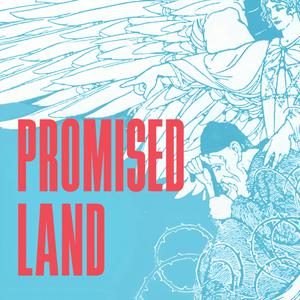 Promised Land
Promised Land
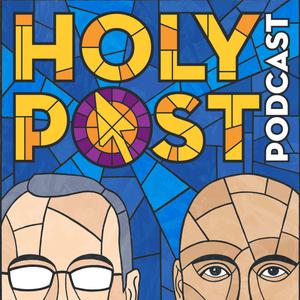 The Holy Post
The Holy Post